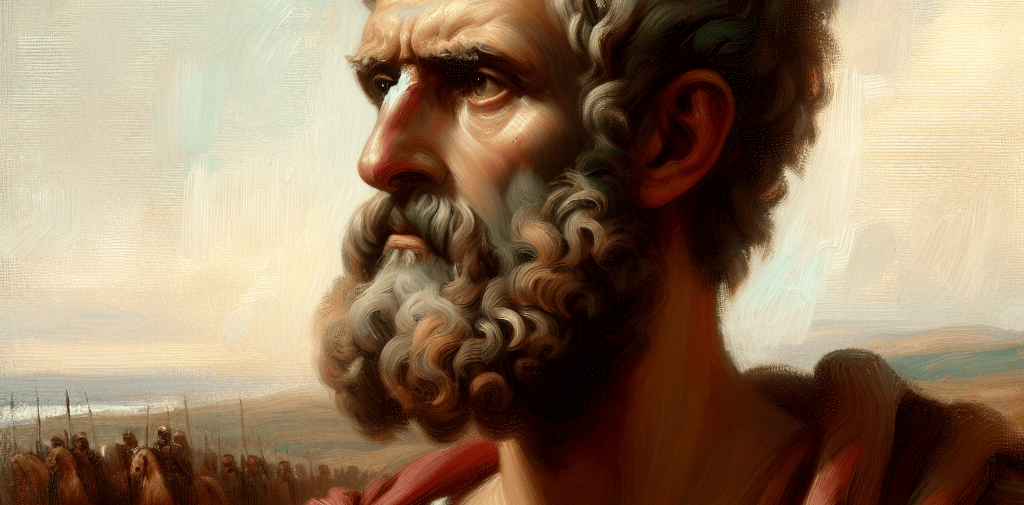The Most Significant Challenges Faced by Marcus Aurelius During His Reign
Marcus Aurelius, known as the philosopher-emperor, confronted a series of formidable challenges throughout his 19-year reign. These obstacles tested his leadership, philosophy, and resilience. Let's explore the most significant challenges that defined his rule.
STOICISM
8/17/20242 min read


1. The Parthian War (161-166 CE)
The Challenge:
Conflict erupted with the Parthian Empire in the East
Roman territories in Armenia and Syria were threatened
Impact:
Required immediate military response at the start of his reign
Strained imperial resources and manpower
Marcus's Response:
Dispatched his co-emperor Lucius Verus to lead the campaign
Successfully repelled the Parthian invasion and secured Roman territories
2. The Antonine Plague (165-180 CE)
The Crisis:
Devastating pandemic, possibly smallpox, swept through the empire
Estimated to have killed 5-10% of the empire's population
Consequences:
Massive loss of life, including soldiers and laborers
Severe economic disruption and labor shortages
Marcus's Actions:
Implemented public health measures
Managed economic fallout and maintained social order
Personally exemplified Stoic calm during the crisis
3. The Marcomannic Wars (166-180 CE)
The Threat:
Germanic tribes, including the Marcomanni and Quadi, invaded across the Danube
Represented the most serious barbarian invasion since the 2nd century BCE
Challenges:
Required Marcus to personally lead military campaigns
Stretched Roman military resources thin
Coincided with the ongoing plague
Marcus's Strategy:
Spent much of his reign on the Danube frontier
Implemented diplomatic and military solutions
Successfully repelled the invasions but at great cost
4. Economic Strain
The Problem:
Continuous warfare and plague depleted the imperial treasury
Economic instability threatened the empire's stability
Marcus's Measures:
Implemented fiscal reforms
Sold off imperial possessions to fund war efforts
Managed to maintain the empire's economy without debasing the currency significantly
5. Avidius Cassius's Rebellion (175 CE)
The Crisis:
Avidius Cassius, a trusted general, declared himself emperor
Threatened civil war and imperial stability
The Challenge:
Required Marcus to quickly respond to internal threat
Tested his leadership and Stoic principles
Marcus's Handling:
Prepared for military confrontation but sought peaceful resolution
Showed clemency towards Cassius's supporters after the rebellion was quelled
6. Succession Concerns
The Dilemma:
Breaking tradition by choosing his son Commodus as heir
Concerns about Commodus's character and readiness to rule
The Stakes:
Future stability of the empire
Legacy of the "Five Good Emperors" system of adopted heirs
Marcus's Decision:
Named Commodus as co-emperor in 177 CE
Attempted to prepare Commodus for leadership
7. Balancing Philosophy and Pragmatism
The Ongoing Challenge:
Reconciling Stoic ideals with the harsh realities of imperial rule
Maintaining ethical consistency while making difficult decisions
Marcus's Approach:
Used philosophy as a guide for governance
Strived for justice and virtue in his actions
Reflected on his challenges in his personal writings ("Meditations")
8. Maintaining Imperial Unity
The Task:
Keeping the vast and diverse empire unified
Addressing various local rebellions and unrest
Marcus's Strategy:
Traveled extensively throughout the empire
Balanced firmness with clemency in dealing with unrest
Promoted Roman culture while respecting local customs
Conclusion: A Reign Defined by Resilience
Marcus Aurelius's reign was marked by a series of formidable challenges that tested both the empire and the emperor himself. From external invasions and internal rebellions to devastating plagues and economic strains, Marcus faced each obstacle with a combination of Stoic philosophy and pragmatic leadership.
His ability to navigate these challenges while maintaining the empire's stability and his own ethical principles is a testament to his skill as a ruler and his strength of character. The lessons from Marcus Aurelius's reign – in resilience, ethical leadership, and balancing idealism with practicality – continue to offer valuable insights for leaders and individuals facing their own challenges in the modern world.
Waste no more time arguing about what a good man should be. Be one - Marcus Aurelius
We suffer more often in imagination than in reality - Seneca
Wealth consists not in having great possessions, but in having few wants - Epictetus
